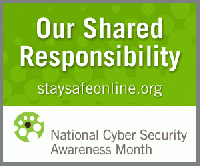 Keep a Clean Machine:
Keep a Clean Machine: Keep a Clean Machine:
Keep a Clean Machine:
This week we’ll be giving you tips on keeping your personally owned computer safe, secure, and speedy!
Malware (spyware or adware) refers to a variety of software that affect computer performance and user security. They usually exist without your knowledge, or are disguised as other programs, and make your computer act maliciously: some log your keystrokes, some redirect your web traffic, and some can even make your computer attack other computers.
Prevention:
-The best way to prevent getting malware is to have an anti-malware program on your machine. Spybot: Search and Destroy, Ad-Aware, and Malwarebytes are three well-known, free, and widely-used programs that can help prevent and recover from malware infections.
-Be careful when downloading programs from the internet, as any .exe or .app file could be disguised malware! When downloading an unfamiliar anti-malware program, always search the name first, as some malware can masquerade as an anti-malware service and can unexpectedly infect your machine. When a pop-up tells you that your machine is infected and only SUPER ANTI-MALWARE 3000 can remove it, it is malware.
-Set your anti-malware software to scan your machine on a regular basis – some malware can remain hidden until a full manual scan uncovers it.
-Scan all foreign external devices such as USB players and iPods before use, as they can also carry malware.
Recovery:
-If you feel your computer is running slower than usual or if anything suspicious happens, run a manual scan from your anti-malware software and follow its instructions to quarantine and remove anything malicious.
-If the malicious software was found to be a keylogger, change your passwords. If the malicious software wasn’t a keylogger, change your passwords anyway.
-Until you’re sure that your machine has recovered, avoid plugging in external media sources (flash drives, SD cards, iPods), as some infections can utilize these portable media to spread to other machines.
Visit https://www.ithaca.edu/its/general/security/computer/ for more information!
https://www.ithaca.edu/intercom/article.php/20120928160931219